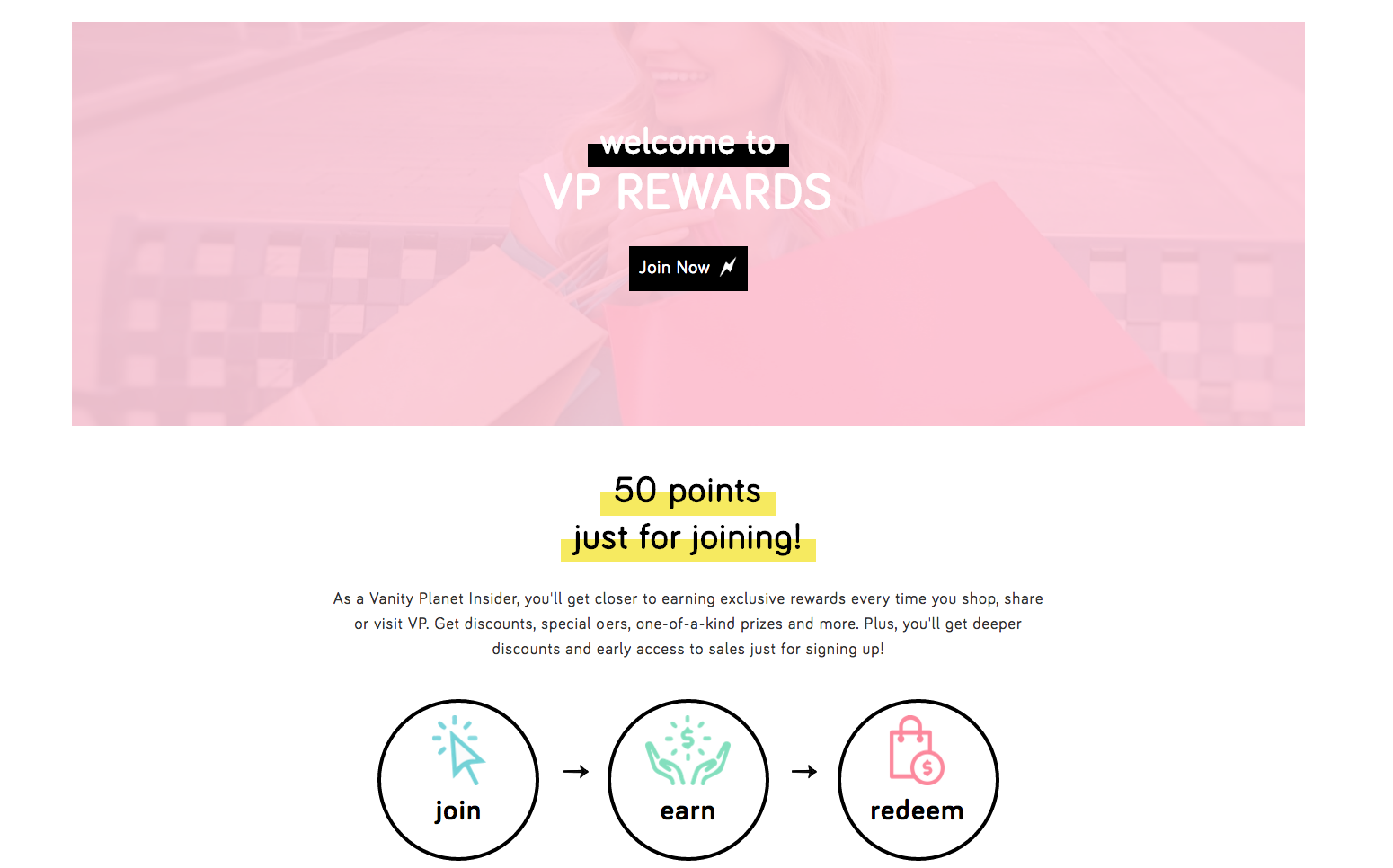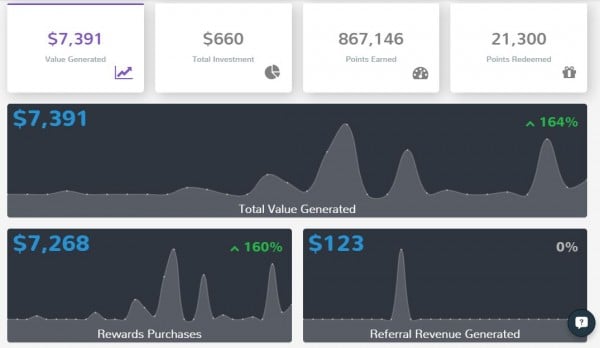Last year, I was catching up over dinner with two friends from college. Given that all three of us were either involved in or passionate about the tech scene at the time, the discussion eventually turned to startups.
“Hey, have you guys tried Lyft yet?” One of my friends asked. When I responded that I hadn’t, I saw an excited look spread across his face. “You should. Hang on…let me send you my code. That way we’ll each get $20 when you sign up.”
Having been a relatively late Uber adopter, I had no intention of trying Lyft until my friend suggested it. I didn’t know much about the company, and didn’t see the advantage of adding another (virtually identical) service to my already-crowded app list on my phone.
 Lyft's refer-a-friend program has been highly successful in leveraging loyal customers to acquire new ones (such as myself).
Lyft's refer-a-friend program has been highly successful in leveraging loyal customers to acquire new ones (such as myself).
Fast forward to the present, and I can say that my friend’s referral worked incredibly well. For $20, I was willing to give it a shot, and I’d estimate that I now take about 25% of my rides with Lyft. I'm sure that makes me a profitable customer despite the fact that they had to spend $40 ($20 on me and $20 on my friend) to acquire me.
And for my friend? Just $20 got him to push me to use a service that he likely wouldn't have even thought to mention otherwise.
Why Are You Telling us This Story?
My story helps demonstrate just how powerful referral (also known as “word-of-mouth”) campaigns can be. While I had likely been exposed to Lyft advertising at some point, no billboard or banner ad resonated with me like that recommendation did.
With that in mind, it’s no wonder that a referral program is by far the number one feature that our merchants have continued to ask us for! While we had always intended to build a referral campaign at some point, the continued requests moved the feature higher and higher on our to-do list.
Today, I’m proud to announce that referral campaigns are now available for our Swell Rewards merchants. In this post, I'll talk more about how a referral campaign works and how it can benefit your business. Whether you operate online, in-store ("brick and mortar"), or a combination of the two, you'll stand to benefit from a Swell referral program.
How Does a Referral Program Work?
Let’s talk about how a referral campaign works at a high level, and then we can get into the nuts and bolts of how merchants can set one up using the Swell platform.
We’ll start by introducing you to somebody who’s familiar with your business – let’s call her Sally. Sally may have visited your website, bought from you once before, or might even be one of your most loyal customers. Regardless of how Sally got acquainted with your business, she's likely ready and willing to introduce new people to your store for you – she just needs a reason to!
That “reason” comes in the form of a financial incentive. By offering both Sally and whomever she introduces a small reward, the likelihood that she’ll be willing to vouch for your business increases dramatically. In this example, let’s say that you tell Sally that you’ll give both her a friend $10 if that friend makes a purchase at your store.
 John's happy with Sally for referring him to a new company that she enjoys buying from, and they both enjoy earning $10 in the process!
John's happy with Sally for referring him to a new company that she enjoys buying from, and they both enjoy earning $10 in the process!
Encouraged by the $10, Sally tells her friend John about the deal. Once John makes a purchase, both he and Sally earn their $10 reward.
For $20, you’ve just earned yourself a new customer – now your job is to ensure that your new customer is worth much more than $20 to your business in the long run!
The best part of a referral program is that it builds on itself. For example, if John has a positive experience, he’s likely to begin referring friends of his own to your store, and the momentum can continue to build from there.
How Do I Set up a Referral Program Through Swell?
The nicest thing about our program is that all of that work – keeping track of who you’ve told about the program, trying to figure out which purchases belong to which referrers, and distributing rewards to both the referrer and her friend(s) – is handled automatically by Swell.
Before we get into how to create your own referral campaign right in the Swell platform, there are just two pieces of terminology that are important to understand:
- The referrer is the person who asks others to purchase from your business on your behalf. They’ll do this by emailing out a link that we create for them, but more on that down below.
- The invitee is the person who receives the link from the referrer. They’ll get offered an award in exchange for buying from your store – just like that $20 I got when my friend encouraged me to try Lyft.
All it takes is a few details to get started with a referral campaign of your own:
- Name – This name will only appear in your campaigns dashboard, so call it anything you’d like. We promise that your customers won’t see it.
- Minimum Spend for Referral – To prevent customers from making a very small purchase just to receive a reward, this field allows you to set the minimum spend required to receive the points.
- Reward Amount – This is how much you’ll offer to both the referrer and their invitee for participating in the program. Keep in mind that for every successful referral, you’ll end up paying double the Reward Amount. For example, if you set the Reward Amount to 500 points ($5), we’ll give 500 points to both the referrer and their invitee upon completion, which will cost you a total of $10.
Once the campaign is set up, you can use our campaign marketing options – the in-page widget, email, and social sharing – to tell your site visitors and customers about the program. In particular, I’d recommend the customer email option; those who have purchased from your business before are the most likely to refer others, and our email marketing option allows you to email all of your customers directly (and automatically!) from Swell.
Once somebody decides that they’re ready to tell their social circles about your business, we’ll generate a custom link for them that they can share with whoever they want. When their invitees make a purchase, we’ll tie it back to the referrer and give both participants credit. Much easier than you doing all of that tracking on your own, huh?
It may sound a bit complicated when broken down in all of that detail, but the campaign actually just comes down to five very simple steps. To recap, here's how to start your own referral campaign:
- Design the campaign. Your most important job here is to decide how much the referrer and the invitee each earn for participating.
- Tell everybody about your campaign. Again, I’d encourage you to email all of your customers, but posting on your website and sharing on social media are great as well (and you can also easily do both of those directly through Swell!)
- Your customers will generate a link (with our help) and email it to their friends, family, and whoever else they can think of.
- Invitees will click the link and make a purchase from your business.
- Once the purchase is made, we’ll give points to both the referrer and the invitee, and you’ll have earned more revenue for your store!
What Else Can You Tell Me About the Power of Referral Marketing?
When done well, referral programs can do wonders for businesses. Here are just a few examples of particularly successful referral programs from companies that have quickly become household names - likely thanks in part to their referral programs:
Dropbox is one of today’s leaders when it comes to cloud-based file storage, and much of their dramatic growth can be directly attributed to their referral program. By giving benefits to both the referrer and the invitee (in the form of increased storage space), Dropbox’s signups accelerated quickly. The referral program has increased signups by 60 percent, and 35 percent of all signups now come from the referral program.
Uber has relied on their referral marketing programs since the company was first founded to grow at astronomical rates. Uber actually uses three types of referral programs, all of which appear to be pretty successful (otherwise they would no longer be using them)! Individuals can earn money for referring not only new riders and new drivers, but potential new drivers from competitors (e.g. Lyft) as well.
Wharton – a leading business school in the U.S. – wrote in 2010 about a study conducted by some of the school’s professors that examined the impact of a referral program on margins, retention, and CLV (customer "lifetime value") at an anonymous German bank. I’d recommend clicking on the link to read about the study in detail, but here are a couple of key facts which show just how effective the referral program was:
- Referred customers stick around for longer – the study showed that referred customers were 18% more likely to stay with the bank than other customers, and that gap didn’t fade over time either.
- Referred customers are more valuable – due in part to the fact that they stick around for longer, referred customers ended up being 16 to 25% more valuable to the bank than other customers; in other words, they spent 16 to 25% more than the average customer before switching to another bank. In fact, that greater “lifetime value” led to a 60% ROI on each referral that the bank paid!
These examples also show that referral programs can be effective for an extremely wide variety of businesses! If a file storage company, a transportation business, and a bank can all benefit from a referral program, I’m confident that one is likely to work for your business as well.
How Many Points Should I Offer for a Referral?
Just like Dropbox, Uber, and the German bank, the right amount to offer for a referral depends on your business. For most businesses though, somewhere in the 500 to 1,500 point ($5 to $15) range for each person (a total of 1,000 to 3,000 points) is usually enough to make the referral happen.
In general, keep in mind that the LTV (“Lifetime Value”) of each referred customer should be greater than the reward you pay out to earn their initial purchase.
That statement is a bit complicated, so let’s unpack it piece by piece. Essentially, there are two factors that you should take into consideration when choosing how many points to offer: how much it’s going to cost you to get the referral, and how much that referred customer is worth to your business.
Figuring out the cost part is easy – it’s just how much you had to pay out for the referral!
Figuring out how much each referred customer is worth to your business (i.e. their CLV) is a bit trickier. To simplify it though, take an educated guess at (or even better, look up your business’ data on) four key variables: how many times a new customer buys from you each year, how much they spend per purchase, what your margins are, and how long they stick around (in years) until they stop buying from you regularly. Then, just multiply all of those to get an estimate of CLV.
Here’s a quick example. Let’s say I sell a line of soap products, and my average transaction size is $10, on which my margins are 40% on average. If a customer buys from me 3 times per year on average, and they usually stick around for about 2 years, then here’s the customer CLV for my soap business:
CLV = $10 transaction size * 40% margin * 3 purchases per year * 2 year retention period = $24
As long as I’m paying less than $24 to get that referred customer in the door, then I’m in good shape!
We hope that our new referral campaign makes a huge difference for all of our merchants. If you have any questions about how the campaign works or want help setting one up, never hesitate to reach out to one of our team members – we’re always here to help.
-J








